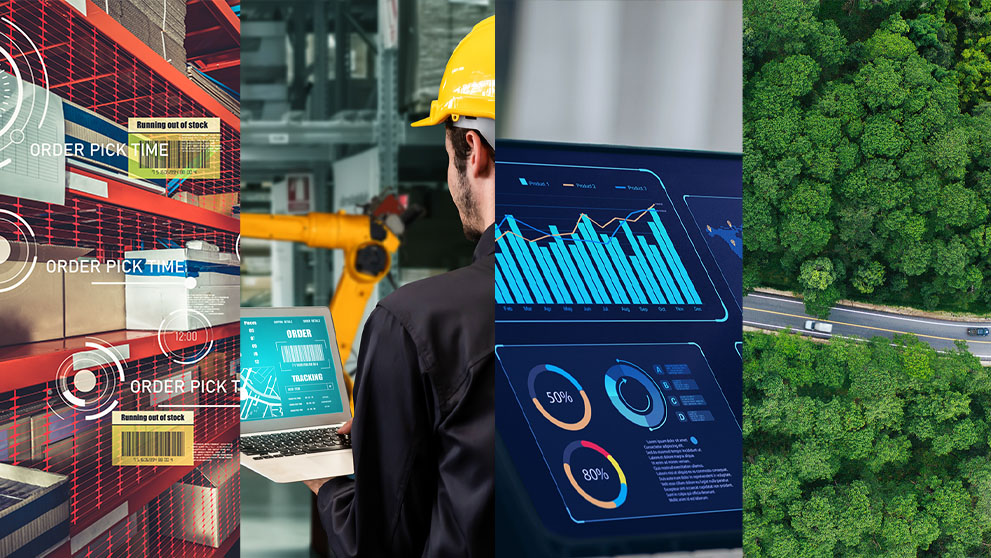Express delivery is growing rapidly. One estimate values the global express delivery market at almost $263 billion (in 2020), increasing to $484 billion by 2030. For your business, these statistics themselves may have little relevance, but what does matter is what they suggest: reliance on express services, including same-day delivery, are on the move. To keep up with the competition, you need to be fast.
Across industries, business leaders know that their customer expect speed – a trend amplified by the pandemic. As we have noted here before, as early as 2014 McKinsey identified same-day delivery as the next step in the evolution of shipping, and we discussed how companies in the retail, technology, banking and finance, and automotive sectors were being impacted. Now, let’s take a look at the role of express delivery in some other key sectors:
Engineering and Manufacturing
From warehousing and fulfillment to transportation and risk management, the logistics needs of engineering and manufacturing (E&M) companies are complex. But one thing that’s clear is that express delivery is playing a greater role in keeping these companies operational and nimble at a time when construction, development, and infrastructure programs grow around the world. In fact, it is the increasingly global nature of manufacturing, along with the growth in development in emerging markets, that makes the fast movement of goods so critical. Factories need parts and machinery delivered quickly so production is not interrupted. They also need to move produced goods quickly to meet unexpected needs and in the event of emergencies. Similarly, construction projects rely on express services for critical materials and equipment in order to avoid costly delays and the cascading effects of work stoppages.
Life Sciences and Healthcare
The life sciences and healthcare industry is experiencing a supply chain transformation and the unique manufacturing and transportation needs of the industry are on full display as COVID-19 vaccines are distributed around the world. The global health crisis has shown the necessity of DHL’s express services in supporting the movement of critical materials from outbreak to final cure. This included the initial need to ensure that personal protective equipment (PPE) was abundant for frontline workers. It then pivoted to transport components needed to manufacture and deliver finished diagnostic tests. From there, it was essential to ensure the delivery of medical kits to collect patient samples for analysis and testing results to central labs. Finally, there was the need to distribute actual vaccines and return reusable Thermal packaging and data loggers to remanufacturing sources.
Moving medical supplies, pharmaceutical products and medical devices requires efficiency and often involves time-sensitive materials and cold storage requirements. A solid logistics process is indispensable for medical shipments, and the right packaging is crucial. With DHL Medical Express, we are delivering directly to the hospital, clinic or patient point of use. It offers specialized packaging that keeps the product within the desired temperature margin with the right amount of Dry Ice or cold packs to ensure the contents of the shipment are optimally protected and delivered within the temperature stability period. In the life sciences and healthcare industry, rapid delivery solutions must be future-proof, designed to comply with evolving regulations, and able to meet the challenges of temperature control and cost efficiency.
Energy
The energy sector relies on logistics to move resources and materials for production, but it also fuels the logistics industry itself. While energy companies move a great deal of material on a large scale, requiring complex planning and specialized transport solutions, express delivery plays a key role in meeting operational and administrative needs. Think of the machine parts, electronic components, and other parts needed for renewable energy projects, as well as for traditional oil and gas ventures and energy generation. Speed is essential to keep the wheels moving for energy businesses.
Public Sector
As noted in this PwC report, the public sector “is, collectively, the world’s largest service provider.” Across nations, people rely on government agencies for information, legal documents, and other materials, and they increasingly expect the same level of speed and attentiveness that they experience with private sector companies. Express delivery is one element in a larger move by public sector organizations to be more responsive and agile for their customers/taxpayers. In certain circumstances and for certain time-sensitive documents, it increasingly makes sense to use next-day options to speed the process.


















